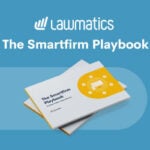IRS Contractor Charged With Stealing Former President Trump's And Other Wealthy Individuals' Tax Returns And Leaking Them To The Press
Nobody knew who gave ProPublica and New York Times the tax returns. Until now.

(Photo by Evan Vucci-Pool/Getty Images)
A little over three years ago, I analyzed a New York Times article which discussed former president Trump’s old tax returns, which he refused to disclose during his campaign and presidency. It stated that during 2016 and 2017, he paid $750 in income taxes despite his constant public flexes about his wealth. He got a lower tax bill because he took advantage of net operating losses, depreciation, foreign tax credits, and various itemized deductions which are available to most middle-class taxpayers. The article later conceded that he paid $24.3 million in alternative minimum taxes during those years, despite the availability of these losses and tax credits.
And over two years ago, I wrote about a ProPublica article that exposed and analyzed the tax returns of some of the wealthiest Americans. It turns out that they did not engage in tax fraud. Instead, they paid relatively lower tax rates by using losses from earlier years and other ventures, unrealized income (which the Supreme Court will later review), foreign tax credits, and the step-up basis rule to transfer estate assets without triggering capital gains tax.

The Smartfirm Playbook - Thriving In Today’s Legal Landscape
Nobody knew who gave ProPublica and New York Times the tax returns. Until now.
Last Friday, the Justice Department announced that it has filed a criminal information against Charles Edward Littlejohn. He is accused of illegally disclosing the tax returns of former president Trump and thousands of the nation’s wealthiest individuals.
Littlejohn, 38, was listed as a contractor for an undisclosed consulting firm that serviced public and private clients. It is unknown whether Littlejohn worked with the IRS directly on tax issues, or on unrelated matters such as IT. Between 2018 and 2020, he stole tax returns and tax information as far back as 15 years or more. He gave this information to ProPublica and the New York Times, which used it to publish numerous articles.
Since a criminal information was filed instead of an indictment, it appears likely that a plea agreement will be reached.
Sponsored

The Smartfirm Playbook - Thriving In Today’s Legal Landscape

LawPay Pro Offers Upgraded Time And Billing Essentials

InterAction+ Brings Power Of CRM Software To Law Firms Of All Sizes

How to Achieve Quicker, More Valuable Case Settlements with Minimal Effort: A Guide for Personal Injury Lawyers
If Littlejohn pleads guilty, he faces a maximum of five years in prison. Despite disclosing tax returns of thousands of individuals, including the former president of the United States, he is charged with only one count of illegal disclosure of tax returns and information. A presidential pardon is also possible considering the White House has not yet made a public statement about this matter.
A speedy, quiet plea deal would ensure that he starts his sentence and be released as soon as possible. It could also ensure that his employer, who would otherwise face numerous and possibly ruinous lawsuits, will not be named. Lastly, this news will quickly stale before the 2024 election season begins.
And what will happen to Littlejohn? If he pleads guilty, he will likely serve his sentence in a minimum security prison. After he serves his sentence, he will have difficulty finding future employment. His conviction and plea deal will be stapled to every job application he ever sends out. He would likely be disqualified for any job that requires a credit check or security clearance.
It is possible that some liberal-leaning employers would consider him a hero and disregard the conviction. But they would still be a bit wary if their customers or clients were high net worth individuals, particularly if they are entrusted with their financial information. If their clients or customers were to learn that Littlejohn was working for them, they would take their business elsewhere. Also, it is only a matter of time before the federal government learns where Littlejohn works as soon as they receive a W-2 or 1099 with his name on it. What they do with that information is anyone’s guess.
IRS Commissioner Danny Werfel stated that any disclosure of taxpayer information is unacceptable and that the IRS has placed new protocols and protections to tighten security.
Sponsored

How to Achieve Quicker, More Valuable Case Settlements with Minimal Effort: A Guide for Personal Injury Lawyers

How Generative AI Is Disrupting Law Firm Billing Practices
Taxpayers, particularly wealthy ones, are not likely to be assuaged by Werfel’s words. These people would be wise to take extra security measures with sensitive financial information. They should give their tax returns only to trusted individuals using password-protected PDF files. They should check their tax professionals’ websites to make sure that they have not hired anyone who was recently convicted of illegally disclosing tax return information.
This case is likely to be resolved quickly and quietly through a plea deal. Unless Littlejohn makes a public statement, we will never know what motivated him to do what he did. If the confidentiality of tax returns was broken once, it is likely to be broken again by someone who thinks it is for the greater good. The vast majority of contractors do very good specialized work that probably could not be done efficiently with an employer-employee relationship. But in light of this incident, contractors will have to be better vetted and meticulously supervised to minimize the chances of a future breach.
Steven Chung is a tax attorney in Los Angeles, California. He helps people with basic tax planning and resolve tax disputes. He is also sympathetic to people with large student loans. He can be reached via email at stevenchungatl@gmail.com. Or you can connect with him on Twitter (@stevenchung) and connect with him on LinkedIn.







